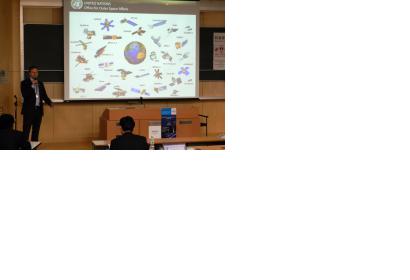On 17 March 2015, UNOOSA/UN-SPIDER contributed to a side event at the Third United Nations World Conference for Disaster Risk Reduction (WCDRR), organized by the CANEUS (Canada-Europe-US-Asia-Africa) International Organization.
The forum entitled "New global framework for sharing of Space technology and data standards to serve nation's disaster management needs" focused on the need to collaborate and share information on an international level in order to mutually enhance the capabilities of nations to cope with disasters. This is crucial as no single country can afford to develop such complete set of sensors and satellite system needed for forecasting, monitoring and mitigating disasters like floods, drought, typhoons, earthquakes, wild fires, windstorms, or tidal events.
The workshop attempted to define technical, policy, financial issues, and a frame public/private partnership implementation plan for the CANEUS-led UN Global-Sat constellation contributing to the post-2015 framework for disaster risk reduction.
UNOOSA's director Simonetta Di Pippo held a keynote presentation presenting the Office's work as well as the role of the Committee on the Peaceful Uses of Outer Space (COPUOS). UN-SPIDER's experts Shirish Ravan and Joachim Post held presentations on "User requirements and high resolution Earth observation applications to disaster risk reduction" and on "The case of flood monitoring and the importance of sharing recommended practices".

